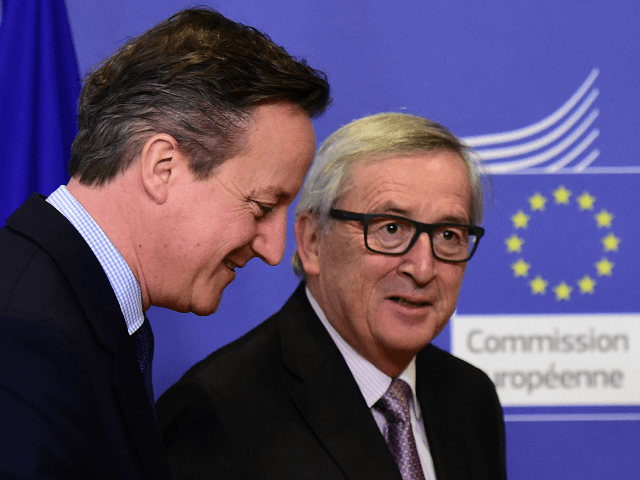Prime Minister David Cameron meets EU president Donald Tusk at Downing Street Sunday as negotiations reach a decisive point ahead of a referendum on whether Britain should leave the bloc.
The working dinner comes before Tusk is expected to publish draft proposals early this week for how to reform Britain’s relationship with the EU, which Cameron can then use to campaign against a so-called “Brexit”.
British officials hope that a final deal can be nailed down at a Brussels summit being held on February 18 and 19. That could then open the door to a referendum in June.
But Cameron insists that he is willing to hold out for as long as it takes to secure the right package of reforms, if necessary delaying the referendum to September or even next year.
Opinion polls currently suggest that Britons would vote to leave the EU by a small margin.
Tusk’s visit comes after Cameron held a hastily-arranged meeting with European Commission chief Jean-Claude Juncker Friday to try and resolve the British leader’s main concern — reducing the number of EU migrants coming to Britain.
Cameron wants to be able to use an “emergency brake” to curb the amount of benefits payments which migrants can claim.
British Prime Minister David Cameron (L) is welcomed by European Commission President Jean-Claude Juncker in Brussels, on January 29, 2016
He emerged from the talks with Juncker saying that, while there had been “progress”, the proposal on the table was “not good enough”.
At Sunday’s meeting with Tusk, Cameron will demand the right to use the “emergency brake” immediately after any referendum vote to stay in the EU, British newspapers said Sunday.
He will reportedly add that the current “emergency brake” proposal does not go far enough and could only be a stopgap solution.
Cameron has set out four areas in which he wants reform — migrant benefits, safeguards against more political integration in the EU, protection of countries like Britain which do not use the euro currency and boosting economic competitiveness.
The main sticking point has been Cameron’s insistence that EU migrants employed in Britain must wait four years before claiming certain welfare payments.
Cameron is under increasing pressure from his own centre-right Conservative party, which has a strong eurosceptic contingent, to come back with a robust deal.
The right-wing Daily Telegraph newspaper called what was currently on offer “pretty thin gruel” in an editorial Saturday.
“If Europe does not give more ground, then Mr Cameron will be taking back a deal to Britain that some may judge is full of empty gestures, jeopardising the pro-EU campaign,” it added.

COMMENTS
Please let us know if you're having issues with commenting.